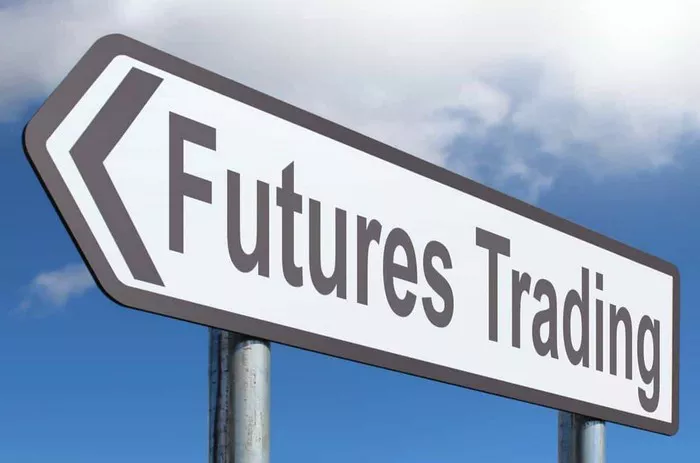Trading futures can be an exciting way to diversify your investment portfolio. However, for beginners, it can seem complex and intimidating. This guide will break down the basics and help you understand how to start trading futures successfully.
What are Futures?
Futures are financial contracts that obligate the buyer to purchase, or the seller to sell, an asset at a predetermined future date and price. The assets can be commodities, currencies, or financial instruments.
Types of Futures Contracts
- Commodity Futures: These include contracts for physical goods like oil, gold, and agricultural products.
- Financial Futures: These cover financial instruments like currencies, interest rates, and stock indices.
Why Trade Futures?
Leverage
Futures trading allows you to control a large amount of an asset with a relatively small amount of capital. This leverage can magnify your gains.
Hedging
Businesses and investors use futures to hedge against price fluctuations in the markets. For instance, farmers might use futures to lock in prices for their crops.
Speculation
Traders can speculate on the price movements of the underlying asset to potentially profit from both rising and falling markets.
How Futures Trading Works
Understanding the Contract
Each futures contract specifies the quantity of the asset, the delivery date, and the price at which the asset will be bought or sold.
Margins
Trading futures involves putting down a margin, which is a fraction of the total contract value. There are two types of margins:
- Initial Margin: The upfront payment to open a position.
- Maintenance Margin: The minimum balance required to keep the position open.
Mark to Market
Futures accounts are marked to market daily. This means gains and losses are settled at the end of each trading day.
See Also: Do You Know How to Choose the Best Trading Account for Beginners?
Getting Started with Futures Trading
Step 1: Education
Before trading futures, it’s essential to educate yourself. Read books, take online courses, and follow market news.
Step 2: Choose a Broker
Select a brokerage firm that offers futures trading. Consider factors like fees, trading platform, and customer support.
Step 3: Open a Trading Account
Open a futures trading account with your chosen broker. This typically requires filling out an application and providing identification.
Step 4: Fund Your Account
Deposit funds into your trading account. Ensure you have enough capital to cover the initial margin and potential losses.
Step 5: Develop a Trading Plan
A solid trading plan should include your goals, risk tolerance, and strategies. Stick to your plan and avoid making impulsive decisions.
Analyzing the Markets
Technical Analysis
This involves studying price charts and using indicators to predict future price movements. Common tools include moving averages, RSI, and MACD.
Fundamental Analysis
This focuses on the economic factors that influence the asset’s price. For example, in commodity futures, this might include supply and demand data.
Placing Your First Trade
Choose Your Market
Decide which futures market you want to trade in. This could be based on your interest or familiarity with a particular commodity or financial instrument.
Select Your Contract
Pick a specific futures contract to trade. Consider the contract’s expiration date and liquidity.
Enter Your Trade
Place an order with your broker to buy or sell the chosen futures contract. Specify the contract, quantity, and type of order (market, limit, stop).
Monitor and Manage Your Trade
Keep an eye on your trade and be prepared to make adjustments. This might include setting stop-loss orders to limit potential losses.
Risk Management
Importance of Risk Management
Effective risk management is crucial in futures trading due to the high leverage involved.
Setting Stop-Loss Orders
A stop-loss order automatically closes your position if the market moves against you by a specified amount. This helps to limit your losses.
Diversification
Avoid putting all your capital into one trade. Diversify your trades across different markets to spread the risk.
Common Mistakes to Avoid
Lack of Research
Never trade based on rumors or incomplete information. Conduct thorough research before entering any trade.
Overleveraging
Using too much leverage can amplify losses. Trade within your means and use leverage cautiously.
Ignoring Market Trends
Pay attention to market trends and avoid going against them without a strong reason.
Advanced Strategies
Spread Trading
This involves taking opposite positions in two related futures contracts to profit from the price difference between them.
Hedging
Hedging is used to protect against adverse price movements. For instance, if you own stocks, you might sell stock index futures to hedge against a market downturn.
Arbitrage
Arbitrage involves taking advantage of price discrepancies in different markets or contracts. It requires quick execution and is often used by experienced traders.
Tools and Resources
Trading Platforms
Use a robust trading platform that provides real-time data, charting tools, and the ability to execute trades quickly.
Market Data Services
Subscribe to market data services for real-time quotes and news. This helps in making informed trading decisions.
Educational Resources
Take advantage of webinars, seminars, and workshops offered by brokers and financial institutions. Continuous learning is key to success in futures trading.
Legal and Tax Considerations
Regulations
Futures trading is regulated by authorities like the Commodity Futures Trading Commission (CFTC) in the US. Ensure your broker is compliant with relevant regulations.
Tax Implications
Futures trading has specific tax rules. Consult with a tax advisor to understand the tax implications and reporting requirements for your trades.
Conclusion
Trading futures can be a rewarding endeavor, but it requires knowledge, discipline, and effective risk management. Start by educating yourself, choosing the right broker, and developing a solid trading plan. With time and experience, you can master the art of futures trading and potentially achieve your financial goals.


